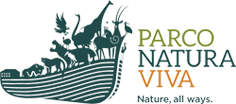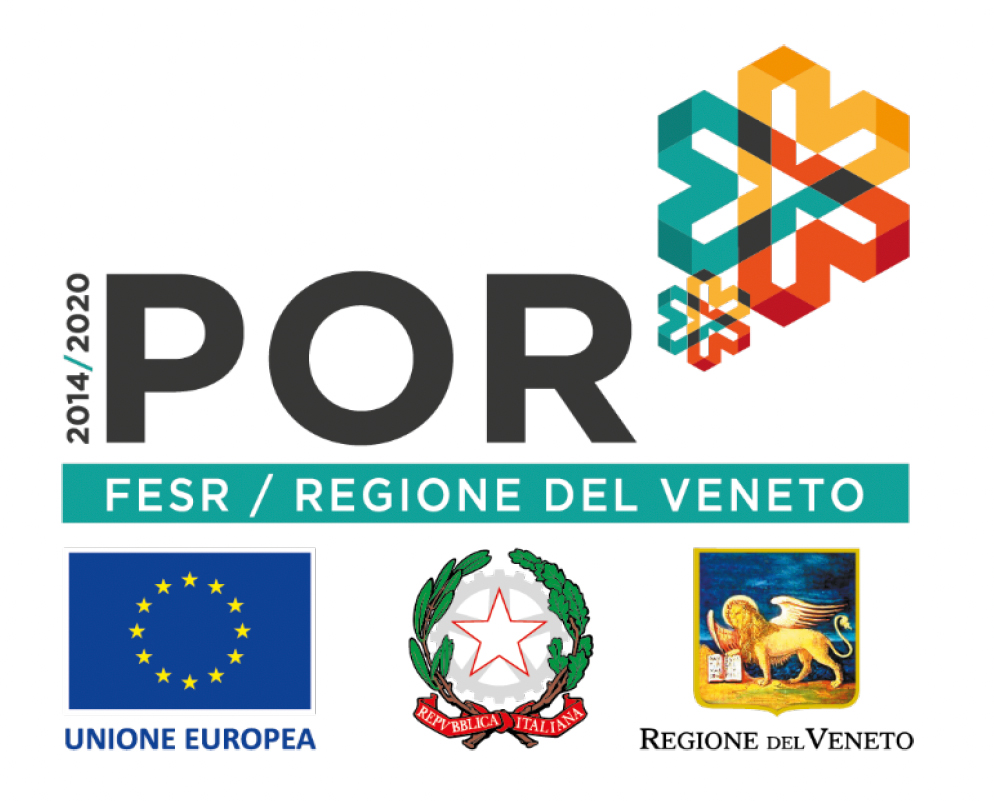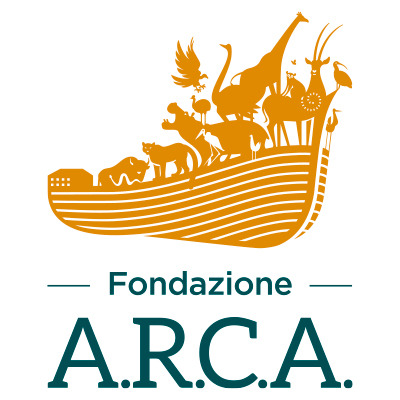Giovedì 4 Ottobre |
|
| 13:00 | Registration |
| 14:30 | Welcome |
| 15:00 | Animal Behaviour and Communication |
| 15:00 | Favaro L, Cresta E, Fumagalli E, Pilenga C, Bandoli F, Isaja V, Pessani D, Gamba M |
| Rhythm variation in display songs of the African penguin at individual and colony level | |
| 15:15 | Palagi E, Marchi E, Cavicchio P, Bandoli F |
| Play fighting and facial communication in slender-tailed meerkats (Suricata suricatta) | |
| 15:30 | De Gregorio C, Zanoli A, Valente D, Torti V, Bonadonna G, Randrianarison RM, Giacoma C, Gamba M |
| Females call the shots: characterization of the song’s rhythmic structure in indris (Indri indri) | |
| 15:45 | Tartufoli B, Bargnesi F, Bucci G, Puce S, Gridelli S |
| Observations and cognitive experiments on a group of three female Asian small-clawed otters | |
| 16:00 | Coffee break & poster session |
| 17:00 | Zoos for Conservation |
| 17:00 | Lunghini E |
| A.I.G.ZOO: the growth in Italy and Europe | |
| 17:15 | Lefaux B |
| The Primates' Integrated Conservation, the role of European zoos | |
| 18:00 | Genero F |
| Eurasian griffon vulture (Gyps fulvus) in the Alps | |
| 18:30 | Icebreaker |
| 18:30 | LIFE+ Northern Bald Ibis: impressions of a European reintroduction project |
Venerdì 5 Ottobre |
|
| 8:30 | Registration |
| 9:00 | Opening |
| 9:00 | Saluti delle autorità |
| 10:00 | Spiezio C, Sandri C, Regaiolli B |
| Behavioural Variety Index (BVI): a tool for the assessment of zoo animal welfare | |
| 10:30 | Coffee break & poster session |
| 11:00 | Conservation Education |
| 11:00 | Pievani T |
| Gene drive for conservation? | |
| 12:00 | Bruslund S |
| Silent Forest - Communicating the Asian Songbird Crisis | |
| 12:45 | Silent Forest Campaign @ PNV |
| 13:00 | Lunch |
| 14:00 | Zucchi D |
| Research: worth spreading | |
| 14:45 | Dell'Aira K, Siligardi PG |
| Reaching the goal: evaluating educational activities in Italian zoos | |
| 15:00 | Bosco F, Ghizzi T, Bosco G |
| Can young people play an active role in protecting biodiversity? | |
| 15:15 | Educandato "Agli Angeli" |
| Schools and zoos: working together for the future of urban biodiversity | |
| 15:30 | Grasso C, Lenzi C, Pollo S, Vitale A |
| Human and non-human primates: visitors’ perception in a wildlife sanctuary | |
| 15:45 | Capasso M, Rizzelli D |
| Mediterranean reptiles: an educational project | |
| 16:00 | Coffee break & poster session |
| 16:30 | Veterinary Medicine |
| 16:30 | Mazzariol S |
| Large cetacean strandings and health monitoring: known and unknown | |
| 17:00 | Cordon R, Bandoli F, Luminelli D, Cavicchio P |
| Monitoring and treatment of lung parasites in red pandas and meerkats: a case study at Pistoia zoo | |
| 17:20 | Balboni A, Musto C, Kaehler E, Caniglia R, Fabbri E, Carra E, Berzi D, Cotti C, Battilani M, Delogu M |
| Is tongue an adequate sample for detection of canine adenovirus type 1 in free-ranging wolf (Canis lupus)? | |
| 17:40 | Fioravanti T, Renzi F, Bargnesi F, Gridelli S, Splendiani A, Caputo Barucchi V |
| Museum specimens to describe the genetic diversity of the critically endangered Mediterranean sand tiger shark (Carcharias taurus – Rafinesque, 1810) population | |
| 18:00 | Spani F, Scalici M, Carosi M |
| Corpses conservation: an example of “ex-situ conservation” to preserve knowledge | |
| 18:20 | De Mori B, Ferrante L, Florio D, Normando S |
| The Ethical Checklist for Conservation Projects (ECCP): a tool to improve the ethical review process | |
| 19:00 | WWF YOUng: Elephant Tusk Force Tour |

Sabato 6 Ottobre |
|
| 8:30 | Registration |
| 9:00 | In situ conservation |
| 9:00 | Conde DA |
| Assessing the landscape of species knowledge on survival and fertility to protect the extant mammals, birds, reptiles and amphibians worldwide | |
| 10:00 | Bulacu A |
| In situ conservation of the European bison: from selection to the formed herd | |
| 10:30 | Coffee break & poster session |
| 11:30 | Hagatis A |
| A preliminary analysis of the habitat use of 2 European bison herds from Tarcu Mountains, Romania | |
| 12:00 | Avesani Zaborra C |
| Parco Natura Viva and A.R.C.A. work together for the future of wildlife | |
| 12:45 | Group photo |
| 13:00 | Lunch |
| 14:00 | Torti V, Beccaro G, Gamba M, Afraitane K, Rasamimanana H, Andriaholinirina Volasoa N, Miasa E, Ratsimbazafy J, Andriamaniraka H, Bounous G, Giacoma C |
| Parco Natura Viva & University of Torino in Madagascar: innovative conservation and sustainable resource management | |
| 15:00 | Sandri C, Flaubert F, Modesto M, Spiezio C, Misci C, Puglisi E, Mattarelli P |
| A first insight into gastrointestinal microbiota of the Seychelles Giant Tortoises | |
| 15:30 | H.S.H. Princess von Liechtenstein T, Crisp E |
| Green Teen Team: bringing young people closer to nature and conservation | |
| 16:00 | Biello R, Spiezio C, Zampiglia M, Nobili G, Zannini M, Mazzotti S, Crisp E, Sandri C, H.S.H. Princess von Liechtenstein T, Canestrelli D, Bertorelle G |
| A reintroduction plan for confiscated Testudo hermanni individuals: genetic aspects | |
| 16:15 | Sandri T, Prettejohn M, Bunge D, Davis N, Jones M, Cain B, Harris WE |
| A newly developed id system allows for population monitoring of mountain bongo in the wild | |
| 16:30 | Coffee break & poster session |
| 17:30 | Workshop - Animal capture, restrain and handling: safety and health procedures |
| 17:30 | Delogu M |
| Wild bird capture, restrain and handling | |
| 19:00 | Aperitivo e Asta |
| 20:00 | Social dinner |
Domenica 7 Ottobre |
|
| 9:00 | Registration |
| 9:30 | Animal Cognition & Welfare |
| 9:30 | Bolcato S, Regaiolli B, Ottolini G, Pievani D, Spiezio C |
| Are you smarter than me? Problem-solving abilities in different species of macaws | |
| 9:45 | Smith OCD, Patterson S, Quintavalle Pastorino G |
| Novel object recognition test to assess cognition and long-term memory of ex situ lions and tigers in the UK | |
| 10:00 | Toledano L |
| Biodiversity: do we really know it? Stories of new species and parks | |
| 10:30 | Coffee break and poster session |
| 11:00 | Animal Communication and Welfare |
| 11:00 | Ferroglio C, Spiezio C, Gamba M |
| So happy together: behaviour of white-bearded sakis and Azara’s agouti in a mixed-species exhibit | |
| 11:15 | Bertoni V, Normando S, Cozzi A, Valsecchi PM, Spiezio C |
| Might feline semiochemicals affect the European wildcat behaviour? | |
| 11:30 | Quintavalle Pastorino G, Mazzola S, Faustini M, Vitali F, Pirrone F, Albertini M, Curone G, Nicoll D, Moffat L, Pizzi R |
| Comparative personality traits assessment of three species of communally housed captive penguins | |
| 11:45 | Sconfienza M, Isaja V, Ponzio P, Piga S, Macchi E |
| Non-invasive monitoring of endocrinological and behavioural response of animals to management: an effective assessment tool for zoological gardens | |
| 12:00 | Scozzoli M |
| Phytotherapy and veterinary medicine: combining nature, science and tradition | |
| 12:30 | And the winner is... |
| 13:00 | Group photo and farewell cocktail |
Sponsor
  |
 |
Parco Natura Viva
5 ottobre 2018 - ore 18:30
In occasione della sua nona edizione, il Convegno Nazionale della Ricerca nei Parchi ospiterà una delle 6 tappe italiane dell'Elephant Tusk Force Tour organizzato da WWF YOUng.
Elephant Tusk Force Tour è l'aperitivo scientifico itinerante italiano promosso dai volontari WWF YOUng a sostegno della campagna del WWF Italia per sensiblizzare sul tema dell'avorio e del bracconaggio degli elefanti a Dzanga Sangha, nella Repubblica Centrafricana. In questa occasione vengono affrontate anche tematiche relative all'ecologia e alla conservazione di questa affascinante specie.
Il relatore di questo appuntamento, introdotto da Fabio Elleon, sarà Davide Palumbo, biologo esperto di fauna vertebrata che si occupa di ricerche sui grandi carnivori per diverse aree protette, con pubblicazioni in ambito internazionale.
Quote di partecipazione |
|
| - iscritti al IX Convegno Nazionale della Ricerca nei Parchi | gratuito |
| - partecipazione al solo evento "Elephant Tusk Force Tour" a partire dalle 18:30 | € 15,00* |
| - partecipazione all'evento e alle sessioni scientifiche del 5 ottobre 2018 | € 50,00* |
Scarica la scheda di iscrizione
Scarica la locandina dell'evento

 |
 |
 |
 Italiano
Italiano English
English Deutsch
Deutsch






